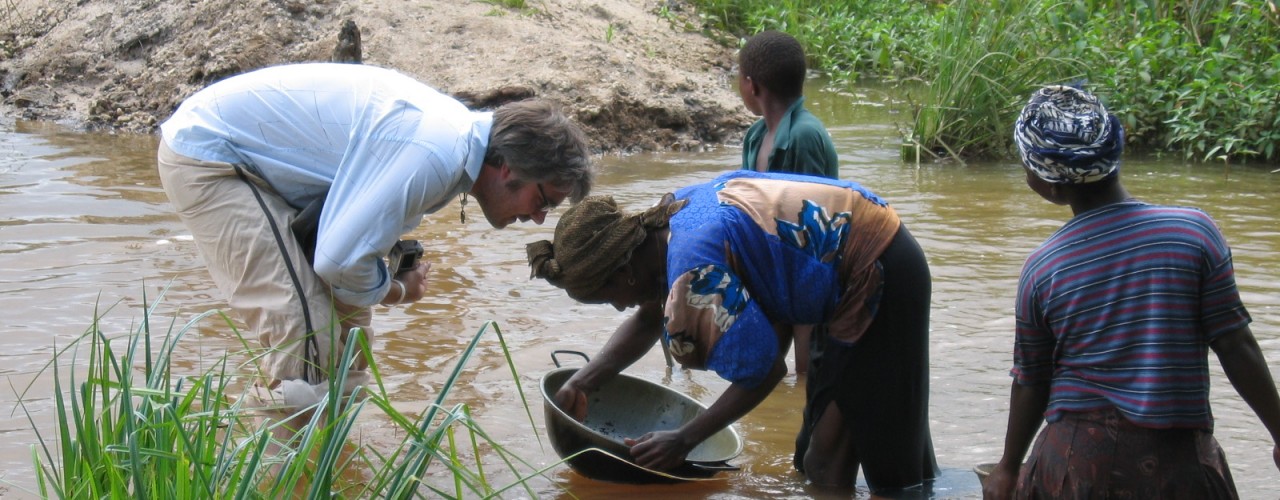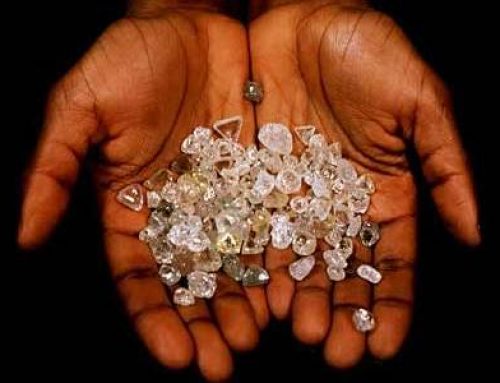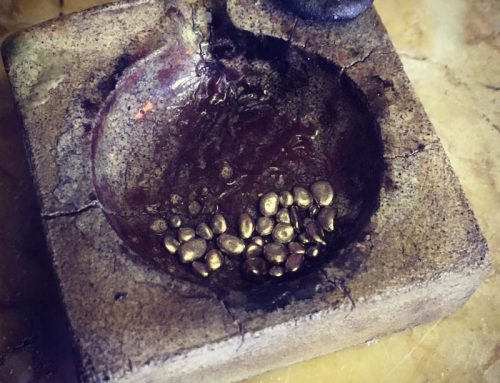To mine gold and be very poor is a contradiction of logic and common sense, yet this is the reality of life facing millions of East Africans on a day-to-day basis. Uganda is a case in point. In early June I attended the 2nd regional conference on Fairtrade gold, a project funded by Comic Relief, whose aim is to engage small-scale miners from Uganda, Kenya and Tanzania and assist them in getting Fairtrade certification for their gold production. A considerable step in the international Fairtrade story and for many followers of the Fairtrade phenomena an exciting opportunity to whet their appetite once again on a controversial yet potential filled product. Let’s be honest for most consumers their only interaction with a Fairtrade product and producer is the Fairtrade mark on an agricultural product in supermarket and the smiling face of the producer on the label. Gold is a whole new world.
But with Fairtrade’s latest and most challenging product, GOLD, following this story affords us the opportunity to see life for the small-scale miner up close and personal long before they reach the point of getting certified. It is a chance for the consumer to see the real challenges that are faced by prospective Fairtrade producers and to see the transformation that can take place on the ground amongst the poorest miners and the benefits that working towards The Fairtrade Gold standard can bring.
And judging by what I experienced on the ground in Uganda, this will not be road travelled down without great courage and determination on behalf of the miners. One lady I met, was standing up to her waist in a brown coloured silted washing pool, bent double at 90 degrees, crouched over a cheap plastic washing up bowl, shifting sands and rocks in a circular motion allowing the slow rhythmic motion of the basin to sort the gold from the other fine sands and non-gold material. As we laughed about the size of her arm muscles, she produced a tiny silver ball from her dress pocket. This silver coloured pellet, no larger than the end of a biro pen was in fact mercury, amalgamated with gold. From which, when burned on a stove in her kitchen in a domestic cooking pan , may give her half a gram of gold that will be sold to a field trader for a few dollars if she is lucky. But before she gets her money she must pay back the trader in gold, for the mercury that he has forwarded to her. How does she know the value of the mercury or the real price of her gold? Well she doesn’t and it is this level of economic exploitation at the hands of trader that further compounds the poverty of her working conditions.
Of course she is not alone in her muddy little washing pool, alongside her are dozens of other women and children acting out the same Dickensian scene of human degradation. Let’s not pull any punches when we say we are talking about slavery. This is the new modern-day slavery of indentured debt bondage to a trader whose only motive is to maintain the imbalance of power on the ground so he can profit from their production.
The critics of Fairtrade say it economic bias to the poor distorts the free market, yet my experience tells me it is the free market that is distorting the lives of millions of poor people everyday. I wonder what is the more moral distortion, the platitudes of the disciples of Smith and Friedman or the daily bread of the gold digger? I once debated a very clever man from the Adam Smith Institute on BBC Radio 4, who challenged me, saying that Fairtrade doesn’t reach the poorest of the poor, well in the case of Fairtrade Gold it most certainly does. Perhaps this very clever man would like to stand next to the women miners of Uganda and explain to them why they are not the poorest of the poor? After all he is a very clever man.
Tolstoy once said ‘I sit on a man’s back and make him carry me, I assure myself that I will do everything in my power to alleviate his suffering, except get off his back’. And this is now the great challenge that faces the Fairtrade Movement. To help the jeweller industry get off the backs of the poor. Can we achieve the Fairtrade transformation of the jewellery sector that has been achieved in some of its other commodities? Can we create a nationwide movement of truth tellers, who get out onto their high streets and start to ask their local jeweller to stock Fairtrade gold? Surely the default purchase in wedding rings should be ‘Fairtrade’?
For our mining partners of east Africa, the road towards Fairtrade Gold will take time, but equally the task of transforming the way the public view jewellery will be an equally big task and to achieve the Fairtrade revolution in gold, we must start now. If we don’t take up this challenge, then we fail the brave miners of east Africa who are placing their faith in us to create a jewellery market that is fair and just into which they will sell their gold.
For more info on how you can purchase Fairtrade Gold please fill out the form below
Error: Contact form not found.






These are powerful articles that bring home the everyday reality of people’s lives, something of which commodity traders and financiars have no experience, choose to forget, or simply couldn’t care less about.